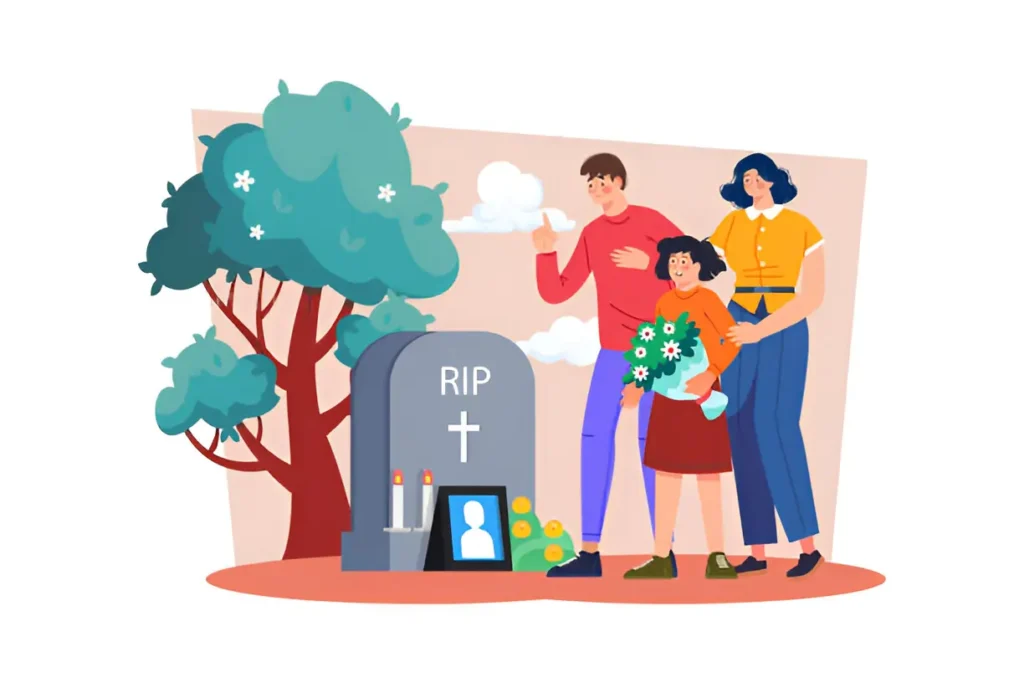Talking to children about death can feel overwhelming. As adults, we want to protect them from pain and sadness, but death is a part of life that cannot always be shielded away. Whether it’s the passing of a grandparent, a pet, or someone else close, children will encounter loss at some point.
How we guide them through these moments can shape their understanding and help them process emotions in a healthy way.
Why It’s Important to Talk Honestly
Children are naturally curious. When they sense something is wrong or notice the adults around them are sad, they often ask questions. Avoiding or hiding the truth may leave them feeling confused or even scared.
It’s better to provide honest, age-appropriate explanations about what has happened. For young children, this might mean explaining that death means the body has stopped working and the person is not coming back. For older children, you can give more details, depending on what they are ready to hear.
Honest conversations also help children trust that they can come to you with their feelings and questions. While grief is never easy, open communication makes it less lonely for everyone involved.
How Funeral Directors Can Help Families
Funeral directors are more than just organisers of services. They are trained to support grieving families during some of life’s hardest moments. When children are involved, they can help parents and carers prepare for the funeral experience, explaining what will happen in simple terms and offering advice on how to include young family members.
Many funeral directors provide resources or suggestions for books, activities, or rituals that are designed for children. They may also recommend child grief counsellors or support groups if extra help is needed. Including children in the planning process, when possible, can help them feel valued and part of the family’s shared experience.
Preparing Children for the Funeral
Once you have explained the death, it’s important to prepare children for what to expect at the funeral. Describe what they might see, such as the casket, flowers, and people crying. Let them know who will be there and how long the service will last. If there are religious or cultural rituals, explain their meaning in a way that makes sense for their age.
Giving children the choice to attend or participate can also be empowering. Some may want to draw a picture, write a letter, or place a small item in the casket. Others may prefer to stay home or be present only for part of the service. Respect their wishes while gently guiding them to understand the importance of saying goodbye.
Common Questions Children Ask
Children often have many questions about death and funerals, and it’s good to answer them simply and honestly. Some common ones include:
- Where did the person go?
- Will they come back?
- Is it my fault?
- What happens to the body?
It’s okay to say “I don’t know” if you are unsure about something. Focus on reassurance, letting them know they are safe and loved. Avoid using confusing phrases like “gone to sleep” or “lost,” which can create fear or misunderstanding.
Supporting Emotions and Grief
Children grieve in different ways than adults. They may cry, act out, ask the same questions repeatedly, or seem unaffected at first but show sadness later. All of these reactions are normal. Provide a safe space for them to express emotions and let them know it’s okay to feel sad, angry, or confused.
Funeral directors often remind families that grieving is a process, not a single event. Encourage routines, allow time for play, and watch for signs that extra support might be needed.
When to Seek Extra Help
Sometimes a child’s grief may become too heavy to manage alone. If they are showing signs of deep sadness that won’t lift, changes in behaviour that last for weeks, or withdrawing completely, it might be time to seek professional help. Grief counsellors, child psychologists, or support groups can offer specialised care. Funeral directors can often provide recommendations or referrals to trusted professionals in your area.
Creating Meaningful Memories
Finally, helping children remember the person who died is an important part of the healing journey. This can include looking at photos, sharing stories, lighting a candle, or creating a memory box. These small acts honour the person’s life and allow children to hold onto positive memories while moving forward.
Funeral directors can suggest ways to incorporate these memory activities into the funeral or memorial service, ensuring the experience is meaningful for everyone, including the youngest family members.
Funeral directors play a quiet but vital role in this process, helping families navigate both the practical and emotional challenges of saying goodbye. By opening the conversation, preparing them for the funeral, and supporting their feelings, you help lay the groundwork for healthy grieving and lasting healing.
Read more: Mastering E-Commerce Success: How Repricers Can Skyrocket Your Sales


